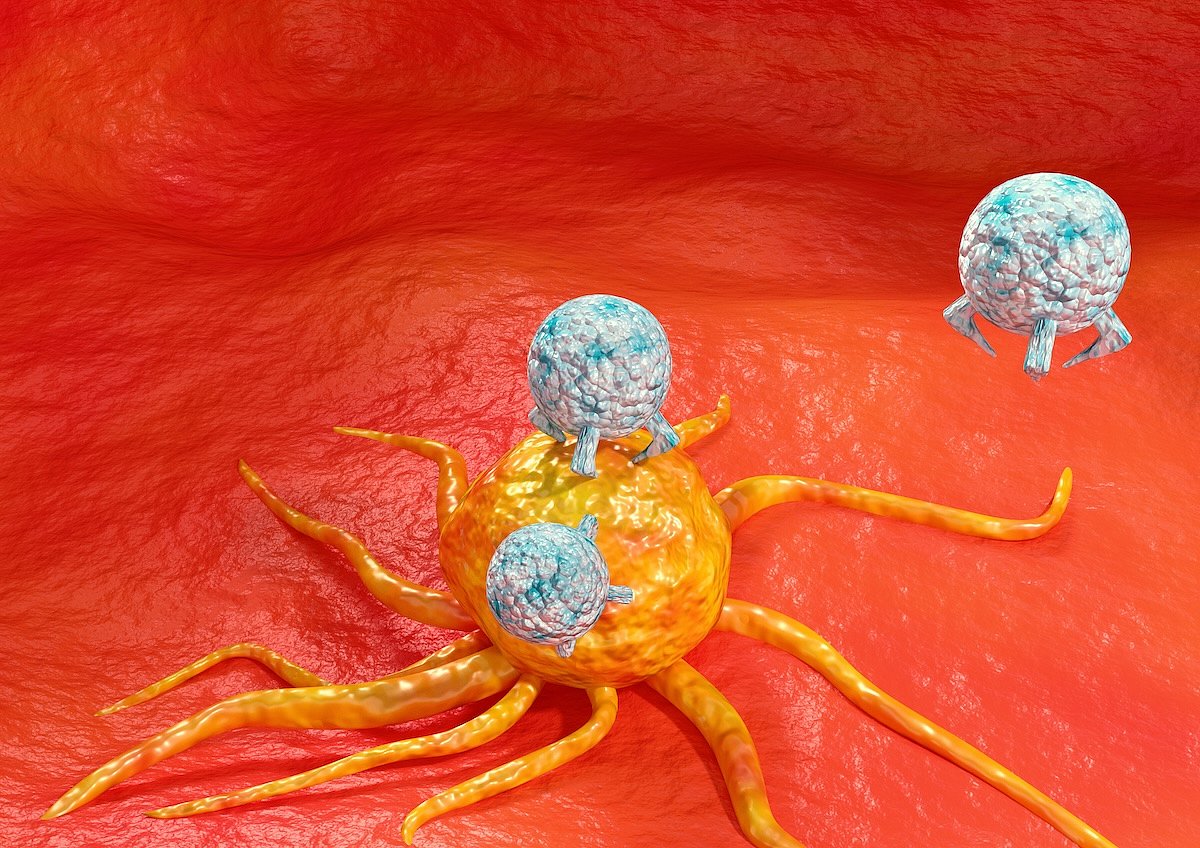Get Healthy!

- Dennis Thompson
- Posted July 9, 2025
Insured? You're More Likely To Survive Cancer Through Immunotherapy Treatment
Powerful new immunotherapies are offering fresh hope for patients with many different types of cancer.
Unfortunately, that hope doesn’t extend to people without health insurance, a new study says.
Immune checkpoint inhibitors (ICIs) are revolutionizing cancer treatment by helping the immune system better find and attack cancer cells in a person’s body.
However, the drugs are also pricey, and people without private insurance or Medicaid are less likely to receive them, and, thus, less likely to survive, researchers reported July 7 in JAMA Network Open.
“These findings are concerning, especially as ICIs are being used more frequently in treating people with both early and late-stage cancers,” said lead researcher Jingxuan Zhao, a senior scientist of health services research at the American Cancer Society.
“ICIs can be lifesaving,” Zhao added in a news release. “However, cancer patients without health insurance coverage may be unable to afford them due to their high costs.”
These are grim tidings, given that between 11.8 million to 17 million Americans are expected to lose health coverage due to Medicaid cuts and other provisions included in the Republican-passed Big Beautiful Bill, according to estimates from the Congressional Budget Office and KFF, a health policy organization.
The new study found that Medicaid patients had about the same survival benefit from immune checkpoint inhibitors as those with private insurance.
For the study, researchers drew data from a national cancer database on more than 12,000 people newly diagnosed with late-stage melanoma, about 152,600 with lung cancer, and nearly 19,000 with kidney cancer. All patients were 18 to 64 years old.
Researchers examined changes in two-year survival for each type of cancer before and after the U.S. Food and Drug Administration (FDA) approved ICIs for their treatment.
Results showed that ICIs made a huge survival difference, and that people with private insurance were more likely to benefit.
For example, two-year survival rates among advanced melanoma patients without insurance increased from 16% to 28% following FDA approval of ICI treatment, researchers found.
But two-year survival leapt from 29% to 46% for people with private insurance, results showed.
Survival disparities similarly widened among lung and kidney cancer patients based on their insurance status following approval of ICI therapies for those conditions.
On the other hand, survival improved similarly for people with private insurance and those on Medicaid.
“Health policies expanding access to insurance coverage options and making new treatments more affordable are needed,” Zhao said. “Expanding Medicaid to individuals without health insurance coverage may improve their access to effective cancer treatments that are also costly, such as ICIs.”
Lisa Lacasse, president of the American Cancer Society Cancer Action Network, agreed.
“Having comprehensive, affordable health insurance is a major determining factor in surviving cancer, especially as promising new – but also costly – treatments, like ICIs, become available,” Lacasse said.
“That’s why ACS CAN has long advocated for increased access to quality, affordable health coverage – made increasingly urgent with recent Congressional action that significantly cuts Medicaid funding and makes affordable health insurance coverage unattainable for millions nationwide,” she added.
More information
The National Cancer Institute has more on immune checkpoint inhibitors.
SOURCE: American Cancer Society, news release, July 7, 2025







